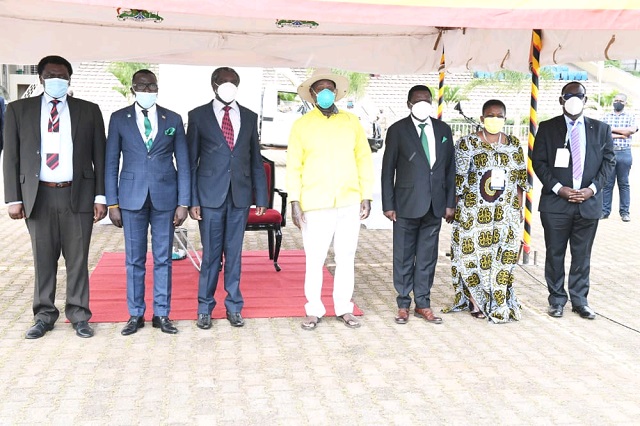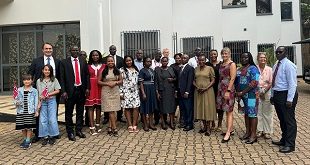
Government distributes funds to political parties using the numerical strength basis, even where they are supposed to use the equal basis in line with the Political Parties and Organisations Act
Kampala, Uganda | THE INDEPENDENT | Opposition political parties have disagreed on the response they should take towards what they call unfair distribution of government funds allocated to political parties in line with the Political Parties and Organisations Act.
The parties say the government usually allocates more money to the ruling National Resistance Movement-NRM, even where the law states that all parties eligible should get an equal share. In the last elections, the government released 15 billion Shillings which according to the opposition was supposed to be shared equally between the parties represented in parliament. The NRM took more than half of it.
The President General JEEMA, Asuman Basalirwa says that the government has been violating this law by using the ‘numerical strength’ basis, even where they are supposed to use the ‘equal’ basis. Basalirwa whose party is the immediate past chair of the Inter-Party Organisation for Dialogue (IPOD), says all efforts to have funds for general elections shared equally as per the law have failed.
The numerical strength basis, according to Basalirwa is supposed to be used on funds meant for the day-to-day activities of the eligible political parties. Under the arrangement, the NRM is favoured because it usually accounts for more than one-third of MPs, meaning it takes more than two-thirds of the funds.
Following the refusal by the Ministry of Finance, Planning and Economic Development to adhere to these provisions, Basalirwa says his party opted out of the last IPOD meeting and has now decided to go to court. He was speaking at the launch of a report by the Alliance for Campaign Finance Monitoring (ACFIM), on the study on election campaigns financing during the 2021 general election, which has been arguably one of the most highly commercialized in Uganda’s history.
Gerald Siranda, the Secretary-General of the Democratic Party supported the court process, saying what the NRM and the government are doing is illegal. He argued that funding opposition political parties is an important part of the democratic process because it produces the best leaders for the country.
The spokesperson of Uganda People’s Congress-UPC, Michael Osinde appealed to the opposition in Uganda to have internal tolerance and also try to practice tolerance with their opponents. He instead urged for continued dialogue and other forms of engagement over the financing issue, instead of withdrawing.
The opposition politicians were of the view that when the NRM gets most of the money, it gives their candidates a big advantage over the others. But Farida Nambi, a former parliamentary candidate in Kampala says each candidate was given 50 million Shillings, which she called too little considering the many constituencies she had to traverse. She says instead she needed at least 1.8 billion Shillings.
On his part, an independent candidate for Kumi County, Simon Obilan said if he had money to match that of his opponents, most of whom were funded by political parties, he would have won the race. Instead, 35-year old Obillan says that he lost all his businesses, cars, houses and friends. He calls on the government to find a way of rescuing the politicians who failed in their bid to join parliament so that they try to recover their livelihoods.
Presenting a summary of the study, ACFIM’s Eddy Kayinda noted that when the political parties are not well funded, they end up losing their value to the democratic process. He cited corruption in the parties, like some cases that were reported over the granting of party flags, the kind of candidates that end up representing the parties, among other negative impacts.
*****
URN
 The Independent Uganda: You get the Truth we Pay the Price
The Independent Uganda: You get the Truth we Pay the Price


